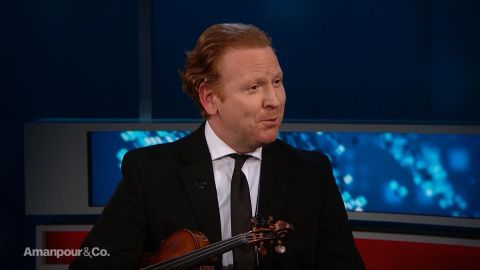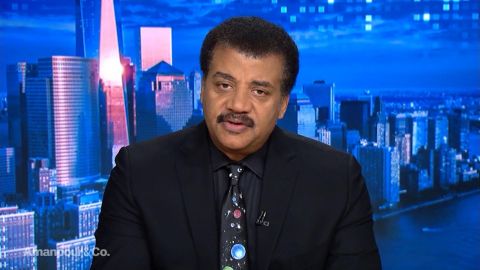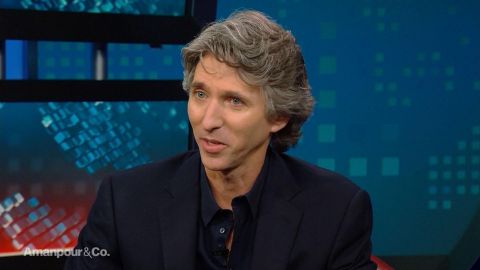Read Transcript EXPAND
DANIEL HOPE: That’s right. And, you know, it was too early for me. But I was frustrated because I love Mendelssohn. I wanted to play this piece and I wasn’t allowed to. So I stole the music from a friend and I went to the communal bathroom. I locked myself in there and I started playing and it probably sounded terrible. But it was the beginning of my love affair with Mendelssohn’s music. And to this day, when I play that piece, I still think back to those memories.
CHRISTIANE AMANPOUR: You also think back very very profoundly to the memories of your ancestral home to Germany. You play a lot of music. You’re determined to keep the spirit alive and also to keep those silenced Jewish composers alive, those were the Nazis tried to silence. And fast forward to Kaddish which is the great mourning song for the dead —
HOPE: Yes.
AMANPOUR: — is one that you play often. This is by Maurice Ravel. And you also, I believe, played it for Menuhin at his deathbed.
HOPE: Not at his deathbed but his final concert, in fact, was in 1999, just a few days before he died very suddenly. And I played it as an encore after we played together as a gesture because I grew up on his recording of the piece. In fact, it was the last time I saw him. And so in hindsight, it became my own personal requiem or Kaddish for him. And ever since then, I’ve played it many times at very different occasions, the Bundestag in Germany for example or to remember people in Thomas mom’s house in the film. We were lucky enough to get in there before it was sold and —
AMANPOUR: The great German writer?
HOPE: Yes. Just to remember certain moments in history. Kristallnacht, the Night of Broken Glass have helped organize concerts in Germany to remember that and often the Kaddish is the piece that I choose to share on those occasions.
AMANPOUR: You said, “It’s my personal Kaddish playing this” and what you did for Yehudi Menuhin. Do you feel Jewish?
HOPE: I feel like a big mixture. I’m Jewish, Catholic, Anglican, European.
AMANPOUR: Because, of course, I ask that because your family were Christians but of Jewish descent.
HOPE: Correct.
AMANPOUR: And you have dedicated so much of your professional life to keeping the spirits of great Jewish and Judaism alive.
HOPE: I feel an incredibly strong connection to that heritage. And my mother’s side, you know, it goes back to the first rabbi so it’s inescapable in that sense and I’m very proud of it. But also, the Irish Catholic side, let’s say there’s a lot of deals in our family if you go back far enough.
AMANPOUR: You have maybe the red hair of the Irish Catholic.
HOPE: Oh, that’s funny enough. That comes from the Jewish —
AMANPOUR: Well, there you go. What do I know? Would you like to play Kaddish for us?
HOPE: I’d love to.
About This Episode EXPAND
Christiane Amanpour sits down with astrophysicist Neil deGrasse Tyson and violinist Daniel Hope. Walter Isaacson speaks with Damian Woetzel, president of The Juilliard School.
LEARN MORE


